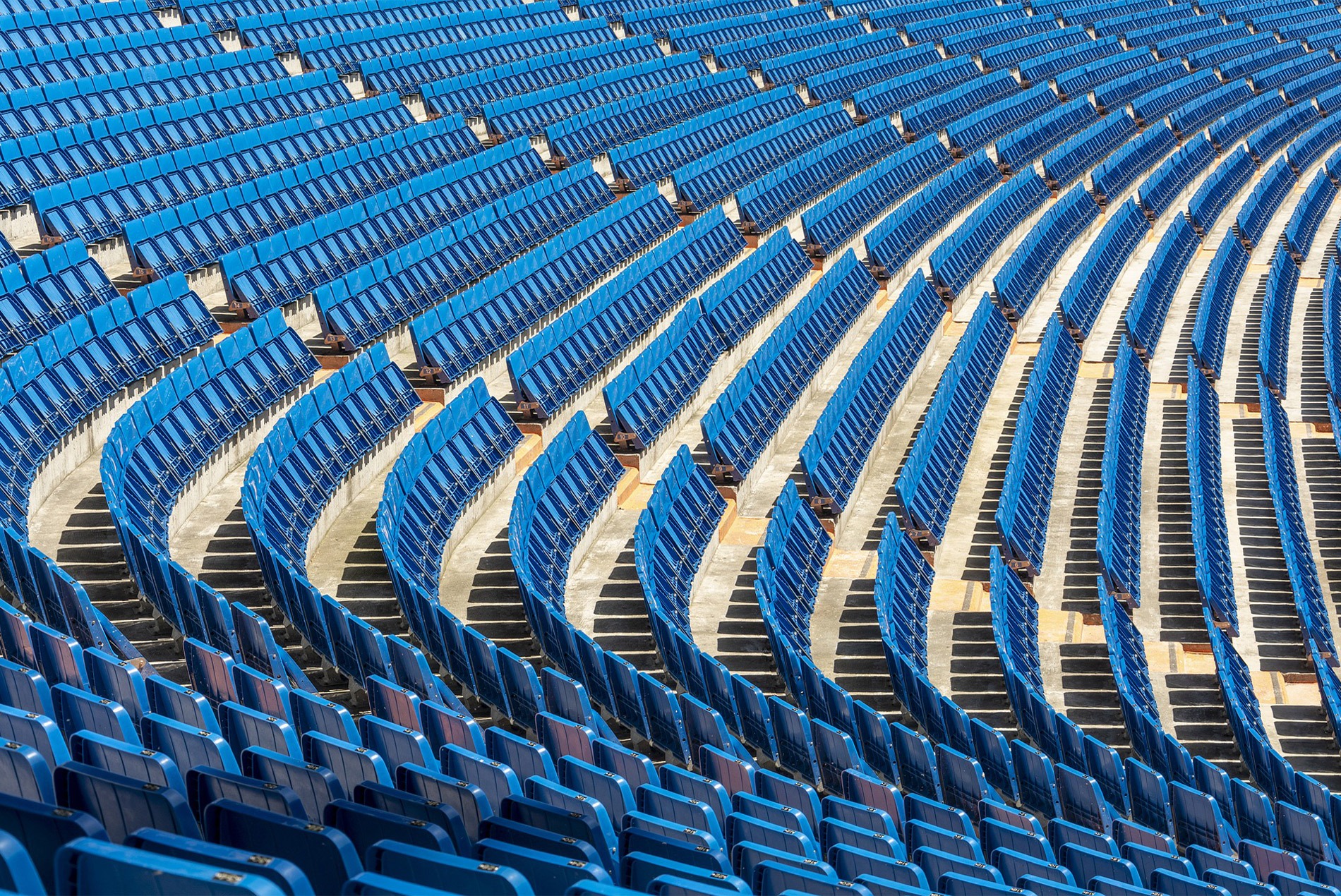Nate Appleman, director of HOK’s Sports + Recreation + Entertainment practice, spoke to the Associated Press about how technology and low capacity crowds and could allow sports venues to gradually reopen as researchers continue to develop a vaccine for COVID-19.
Excerpted from the Associated Press:
The coronavirus pandemic that brought sports to a standstill for months has everyone wondering what games will be like when spectators are finally allowed back in. It will almost surely be different in ways big and small.
Fans could have their every move scrutinized by cameras and lasers. There might be nobody in the next seat to high-five after a touchdown. The idea of passing cash to a beer vendor between innings will be a memory. Temperature screenings and medical checks could be mandatory. Virtual tickets will be the norm.
It all begs the question: Will fans even be able to enjoy the experience again?
“There’s a wealth of unanticipated casualties, I guess, that are going to be part of this, things we all took for granted as part of the live game-day experience,” explained Nate Appleman, director of the Sports + Recreation + Entertainment practice for architectural firm HOK. “Some things we have yet to fathom but will become painfully clear once we are allowed back into venues and get back to truly human nature, which is to gather and celebrate community.”
The biggest short-term change will be social distancing, which already has permeated everyday life. Ticket sales will be capped. Entire rows and sections blocked off. Seats on the aisle left open to keep a buffer from fans walking up the stairs. Fans will be given an entrance time to prevent crowding at the gates. Lines at restrooms and concessions will be limited. Congregating in the corridors will no longer be allowed.
“There’s the old saying, ‘Necessity is the mother of invention.’ I would say we’re in a heightened situation of necessity right now,” Appleman said. “There are a lot of really smart people coming up with really cool initiatives that could just be a new way of doing things, and new isn’t always bad. Sometimes change is good. Sometimes we have to adapt.”
Appleman and Design Principal Bill Johnson also were quoted in a Yahoo! story examining how sports venues could be transformed by the pandemic.
Excerpted from Yahoo!:
“We can draw on our computer screen a professional layout where everyone is social distanced,” says Nate Appleman, director of Sports, Recreation and Entertainment at the HOK design firm, which designed the Atlanta Falcons’ Mercedes-Benz Stadium, among others. “And then the minute that you introduce humans into the equation it all goes completely haywire because there’s free will and choice. It’s really a challenging problem to solve. Without a vaccine, it’s only mitigation of risk; it’s not ‘safe.’”
“We’re in the middle of a time where I think we were already seeing fan expectations change for the live event before the pandemic actually occurred,” says Bill Johnson, the design principal at HOK, where he’s working on remodeling Phoenix Suns’ Footprint Center right now, one of myriad arenas downsizing their capacity in favor of a more intimate feel. “A lot of these buildings were at a point where it was time to change them anyway. Now we’ve had to take a hard look at it. If we’re going to decrease capacity, how do we create that social experience when we’re trying to stay 6 feet away from each other?”
